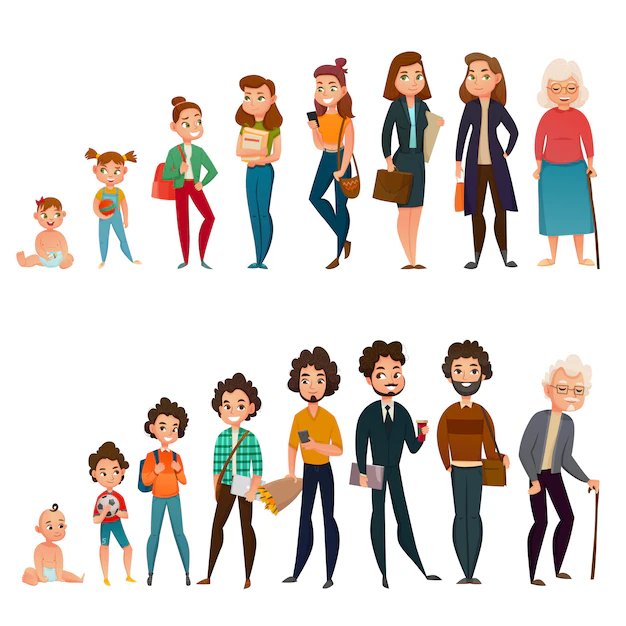Embracing Growth: Therapy for Age Regression and Senior Citizen Development
Page Contents
Introduction
As individuals advance through life’s stages, aging often brings forth various emotional, psychological, and developmental challenges. Addressing these challenges with therapeutic interventions, including age regression therapy and tailored approaches for senior citizens, plays a pivotal role in supporting emotional well-being and promoting healthy aging.

Therapy for Age Regression and Senior Citizen Development
- Understanding Age Regression Therapy:
- Age regression therapy is a specialized form of psychotherapy that encourages individuals to revisit earlier stages of life, often childhood, to explore unresolved issues, traumas, or unmet emotional needs that might be influencing present-day challenges. By accessing earlier memories and emotions, individuals aim to gain insight, heal past wounds, and foster personal growth.
- Benefits of Age Regression Therapy for Seniors:
- Senior citizens encountering challenges associated with aging, such as loneliness, grief, chronic illness, or cognitive changes, can benefit from age regression therapy. This therapeutic approach allows them to explore unresolved emotions from the past, offering opportunities for healing, acceptance, and a renewed sense of self-understanding and resilience.
- Tailored Approaches for Senior Citizen Development:
- Therapeutic interventions specifically designed for seniors focus on addressing the unique psychological and emotional needs prevalent in this demographic. These approaches often include cognitive-behavioral techniques, reminiscence therapy, life review therapy, and mindfulness-based practices.
- Cognitive-Behavioral Techniques:
- Cognitive-behavioral therapy (CBT) adapted for seniors focuses on addressing negative thought patterns, coping with life transitions, managing stress, and enhancing problem-solving skills. It assists in adapting to changes and maintaining mental flexibility, contributing to improved emotional well-being.
- Reminiscence Therapy and Life Review:
- Reminiscence therapy involves recalling and discussing past experiences, enabling seniors to reflect on their life stories, achievements, and challenges. This process aids in processing emotions, promoting a sense of fulfillment, and providing opportunities for self-reflection and closure.
- Mindfulness and Relaxation Techniques:
- Mindfulness-based interventions and relaxation techniques, such as meditation, deep breathing exercises, and gentle movement practices like yoga or tai chi, can help seniors manage stress, alleviate anxiety, and enhance overall mental and emotional resilience.
- Social Connection and Support:
- Encouraging social connections and fostering a sense of community among seniors through group therapy, support groups, or community-based programs can significantly contribute to emotional well-being, reduce feelings of isolation, and promote a sense of belonging.
- Importance of Holistic Approach:
- Effective therapy for senior citizens should consider a holistic approach, addressing physical, emotional, social, and cognitive aspects of well-being. This approach acknowledges the interconnectedness of these domains and aims to support overall health and vitality in older adults.
Here are some examples and scenarios illustrating how therapy approaches, including age regression therapy and tailored interventions for senior citizens, can be applied:
- Age Regression Therapy Example:
- Scenario: A senior individual, let’s say in their late 70s, seeks therapy due to persistent feelings of anxiety and insecurity stemming from childhood experiences of neglect. Age regression therapy allows them to revisit those early memories in a safe therapeutic setting. The therapist helps the individual explore these memories, identify unresolved emotions, and provide support for healing and integration. Through revisiting these experiences, the person gains insight into their current feelings and behaviors, leading to emotional resolution and a renewed sense of self-worth.
- Cognitive-Behavioral Techniques for Seniors Example:
- Scenario: An older adult is struggling with adapting to retirement and faces challenges in adjusting to a new routine. A therapist specializing in cognitive-behavioral techniques works with the individual to identify negative thought patterns contributing to feelings of purposelessness. Through therapy, the senior learns cognitive restructuring techniques to challenge and reframe these thoughts. They also develop coping strategies and set achievable goals to establish a fulfilling retirement lifestyle, enhancing their overall well-being and sense of purpose.
- Reminiscence Therapy and Life Review Example:
- Scenario: A group of seniors in an assisted living community participates in a structured reminiscence therapy program. Facilitated by a therapist, these sessions involve group discussions and activities focused on sharing life stories, meaningful experiences, and lessons learned. Through these sessions, the seniors gain a sense of validation, closure, and purpose by reflecting on their life achievements, fostering a deeper connection with themselves and their peers.
- Mindfulness and Relaxation Techniques for Seniors Example:
- Scenario: An elderly individual experiencing heightened stress and anxiety due to health concerns and changes in their living situation seeks therapy. The therapist introduces mindfulness-based practices, teaching breathing exercises and guided meditation sessions tailored for seniors. These techniques help the individual manage stress, promote relaxation, and cultivate a more positive outlook on life, thereby improving their emotional resilience.
- Social Connection and Support Group Example:
- Scenario: A retired senior who recently lost their spouse feels isolated and struggles with feelings of loneliness. They join a support group facilitated by a therapist, where they engage in discussions, social activities, and receive emotional support from peers facing similar challenges. Being part of this community provides the individual with companionship, a sense of belonging, and an avenue for shared experiences, alleviating their sense of isolation and improving their mental well-being.
Conclusion
Therapeutic interventions tailored for age regression and senior citizen development hold significant promise in promoting emotional resilience, fostering personal growth, and supporting healthy aging. By addressing psychological challenges and providing tools for emotional well-being, these therapeutic approaches empower seniors to navigate life’s transitions with greater resilience, self-awareness, and an enhanced quality of life.







